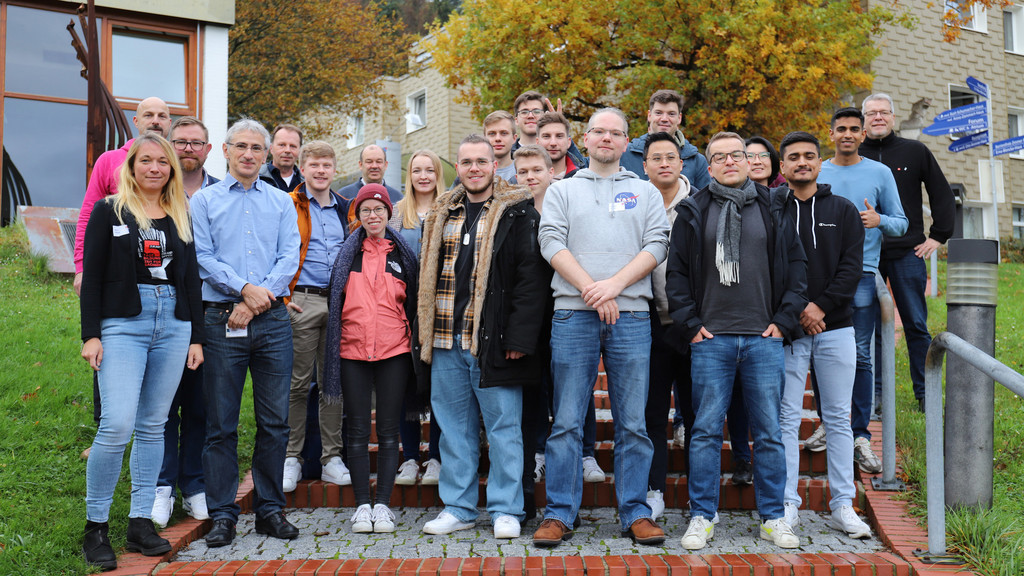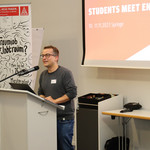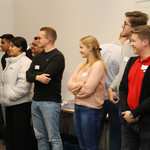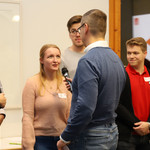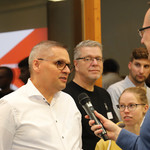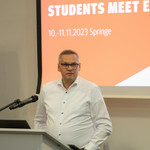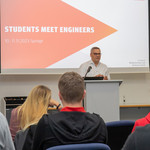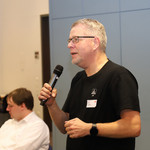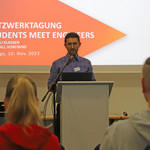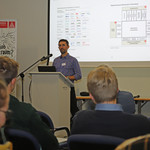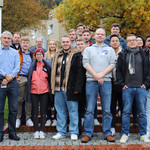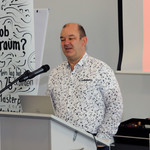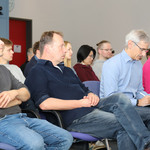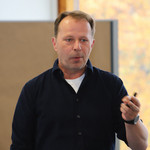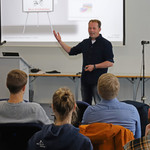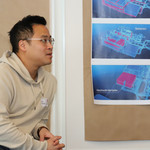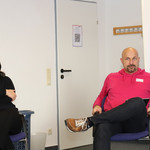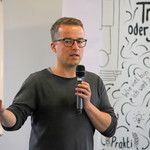students meet engineers
The future of mobility: co-determined
11/13/2023 | For the seventh time, students and engineers from the IG Metall regions of Lower Saxony and Saxony-Anhalt as well as Berlin-Brandenburg-Saxony took the opportunity to discuss future topics at the weekend. This time, the focus was on issues relating to the mobility of the future.
The conference began with a tour of Siemens Mobility in Brunswick. Here, the participants gained an insight into the current development of rail infrastructure. It was particularly exciting to see that the signaling and control technology from past decades is still being produced in Braunschweig due to contractual obligations.
The remainder of the conference examined mobility from a variety of perspectives. Thorsten Gröger, regional manager of the IG Metall in Lower Saxony and Saxony-Anhalt, outlined the challenges facing the mobility industry. These include the push towards digitalization, product changes and changes in the production process: Managing the various facets of transformation in a way that is not only sustainable and ecological, but also socially responsible and in the interests of employees is a major challenge.
Anatoli Klassen explained what this means in concrete terms. As sector representative for the rail industry in the IG Metall executive board administration, he outlined the ambivalent development of the rail industry in recent years. On the one hand, political conditions have led to increased investment in infrastructure, which benefits the industry. On the other hand, sites are being closed. Against this backdrop, Klassen also emphasized the role of IG Metall in industrial policy. The union is active here to introduce and implement its own ideas for a successful mobility turnaround.
Gerald Stöckl of Upstream Mobility in Vienna focused on urban mobility issues. Connected online, he explained the role his company plays in the transformation of transport in Austria. As a wholly publicly owned company, it helps local authorities and public transport operators to improve transport planning and optimize the use of intermodal mobility services. In this way, the data collected is not left to the private sector. Instead, it can be used for projects in the public interest.
Matthias Wilhelm, Managing Director of IG Metall Salzgitter-Peine, and two workshops rounded off the range of topics relating to mobility. Wilhelm used two specific examples to illustrate how companies in his area of responsibility - Salzgitter Flachstahl and Volkswagen - are shaping the transformation. In his view, it is primarily thanks to the commitment of co-determination stakeholders that social factors are being put on the agenda in transformation processes.
In their workshop, Mark Bäcker and Thomas Forstmann from IAV gave an insight into an operational project: the electrification of bus fleets. In addition to the technical requirements, the focus was also on questions of upcycling and ecology. In a second workshop, Markus Friedel from IG Metall Koblenz shed light on the bicycle industry.
After gaining an insight into the facts and figures of this industry in Germany, the participants discussed questions of co-determination and collective agreements in this sector. The very successful "Yes we canyon" campaign was cited as a positive example. In the course of the campaign, a collective agreement was concluded. Canyon is also one of the few sites with company participation structures.
Conclusion of the conference: As IG Metall and society, we want affordable and climate-friendly mobility. But it is also clear that changes in the mobility industries must be socially responsible. For us, the debate about the future of mobility is always linked to good working conditions.

 Become a member
Become a member